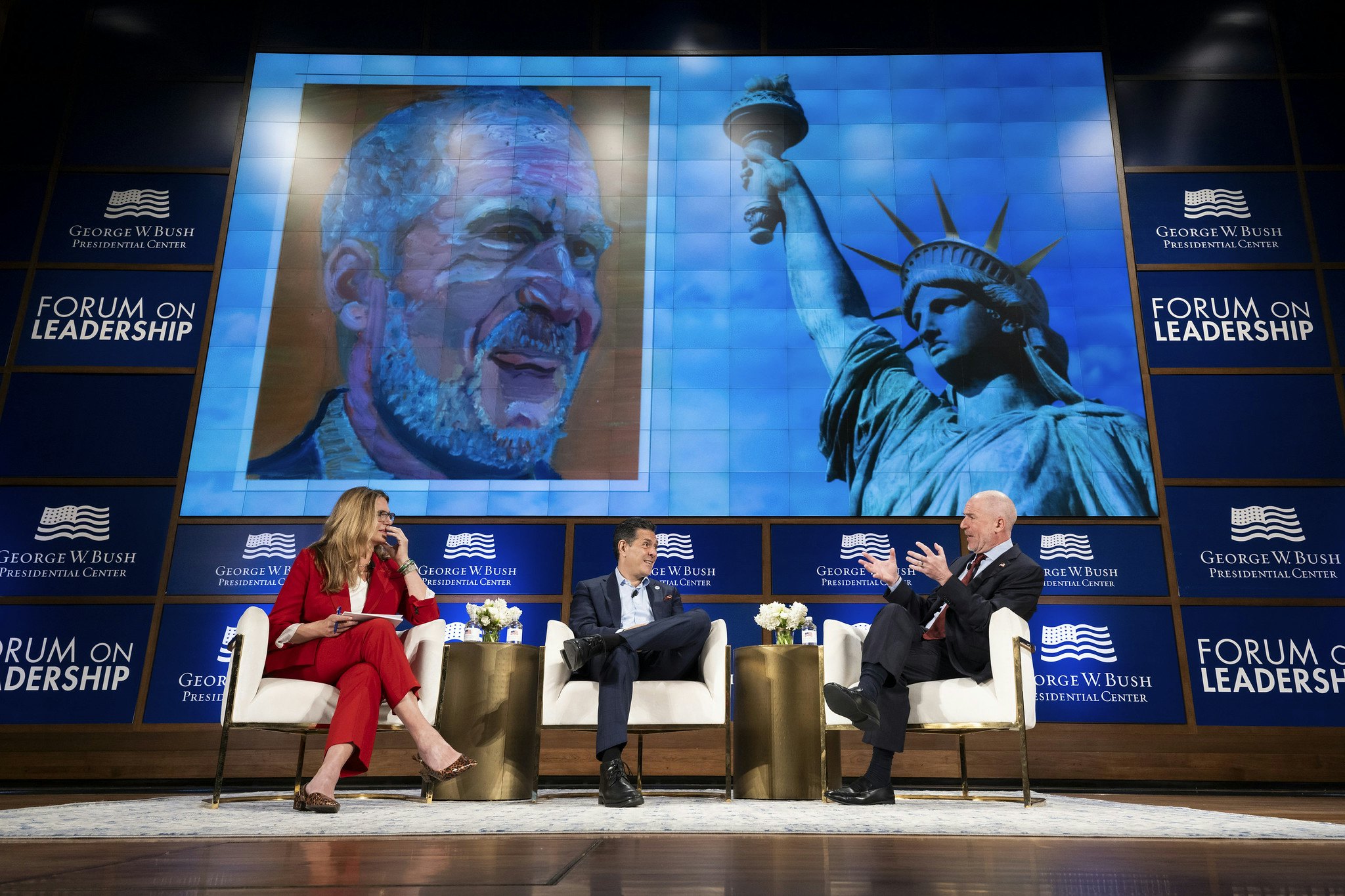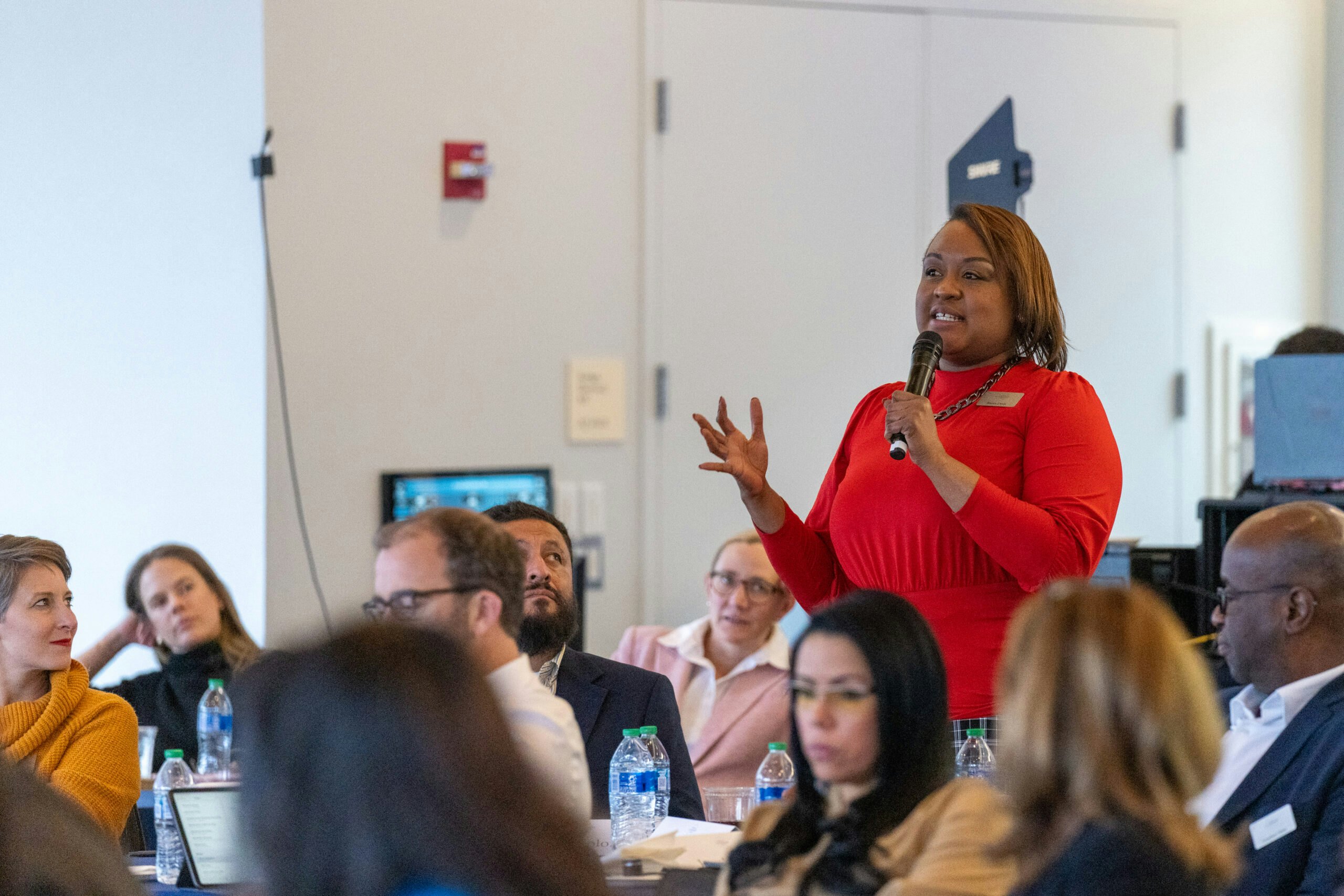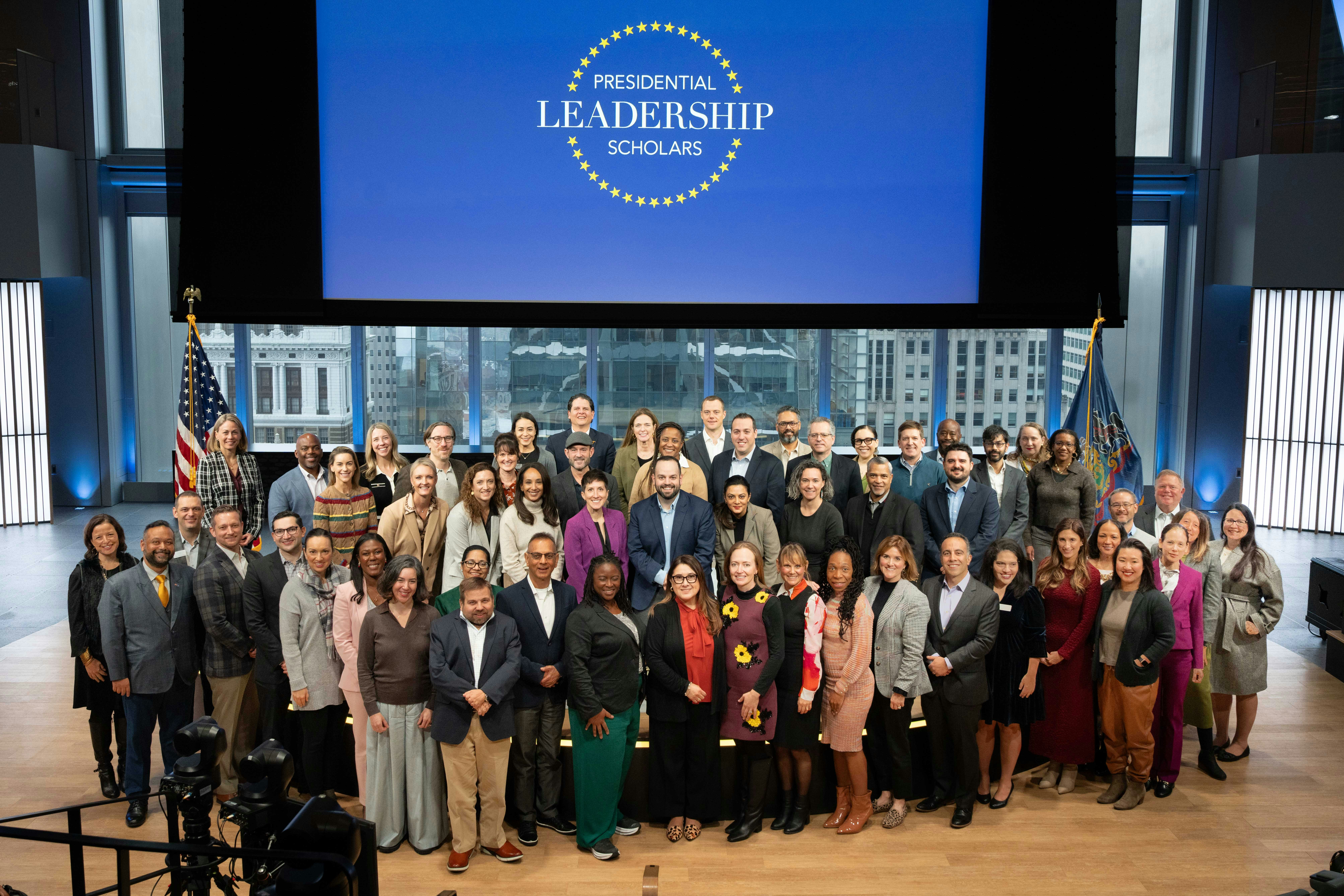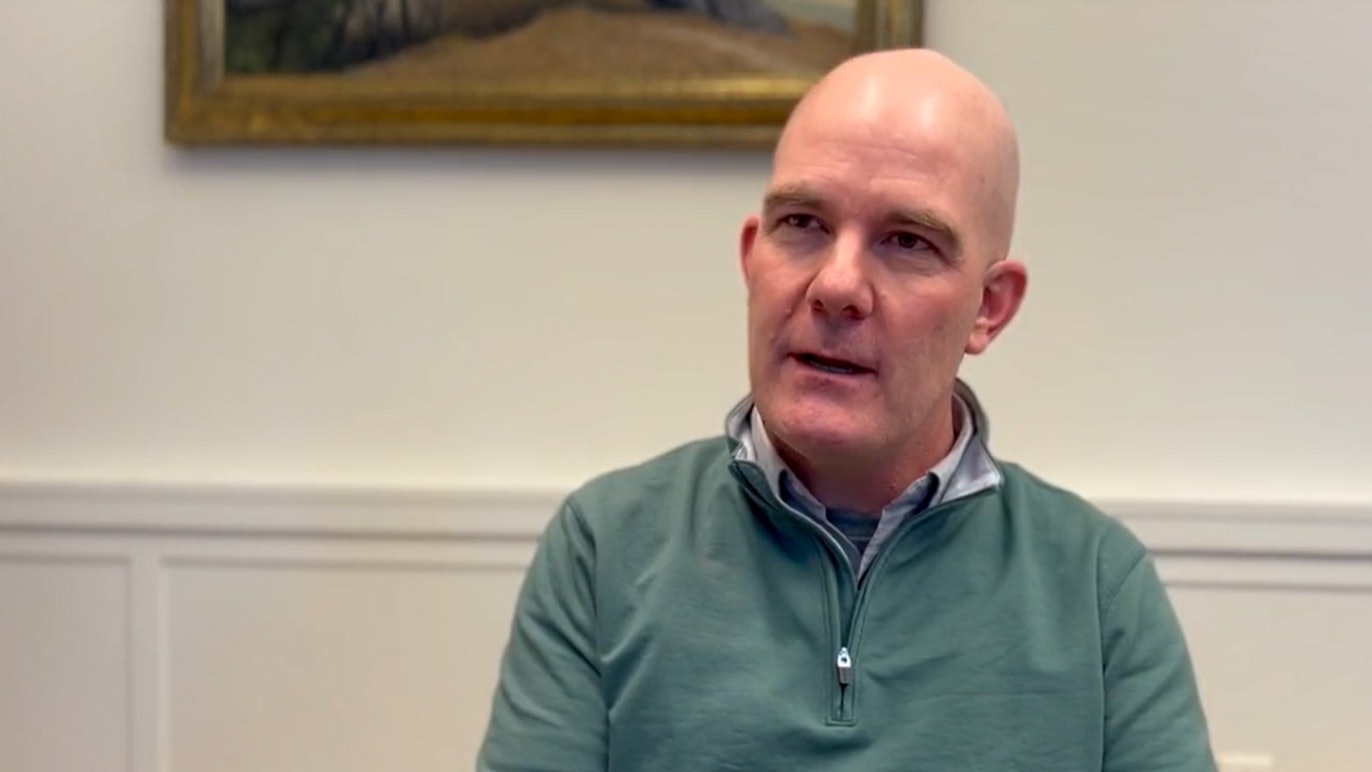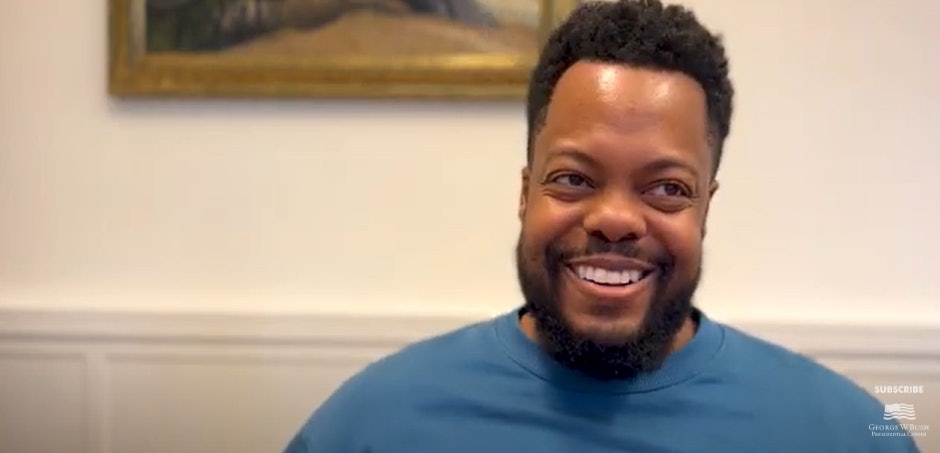As her uncle lay painfully dying in a hospice care facility in the heart of Philadelphia, Nubia Peña gathered with other rising American leaders a few blocks away to work on solving our nation’s most pressing issues while building community and bridging divides.
What happened next couldn’t have been more apt, particularly in the City of Brotherly Love. During a reflective session of the Presidential Leadership Scholars program, Peña uncharacteristically teared up when asked to consider “what or who do you wish you could prioritize?” Dr. Anahita Dua began to press her to find out what was wrong.
Dua learned that Peña’s uncle, Victor, had been relegated to end-of-life hospice care after declining a doctor’s advice to have his leg amputated from advanced peripheral artery disease (PAD), a common pathology that is the number one cause of amputation in America due to blood vessel blockage in the legs. Additionally, Victor had fallen and broken his hip. The hip couldn’t be repaired until the infection in his leg was dealt with – by severing the limb.
Dua, a vascular surgeon and Co-Director of the Peripheral Artery Disease Center and Limb Evaluation and Amputation Preservation Program (LEAPP) at Massachusetts General Hospital/Harvard Medical School in Boston, was actively working on protocols to reduce the number of unnecessary amputations both in her day job and as part of her personal leadership project for PLS.
“Let’s take him to the hospital, and I’ll coordinate his care to try to save his leg and life,” Dua told Peña. “I can’t promise anything, but if they can do an advanced procedure to restore his blood flow, he may heal. We can then get his hip fixed, and he could potentially come out of hospice.”
Victor’s story raised some red flags for Dua: He didn’t speak much English, and the medical staff hadn’t brought in a Spanish-language interpreter to explain his condition and options. A multidisciplinary team and group effort was required, but Victor’s story sounded fragmented and piecemeal at best. Dua also knew that half of those over 60 years who get a leg amputated will die within a year. In his early 70s, Victor wasn’t that old, and letting the infection rage was a slow and painful way to die.
While PAD is frequently attributed to Black, brown, Native American, Indian, and Arab communities, it’s in fact a disease found in aging populations regardless of race and affects more White patients than anyone else.
“You don’t have to die like this, in extreme pain, in America, in Philadelphia, in the first hospital in the United States,” Dua said. Though she wasn’t credentialed to practice in Pennsylvania, she had colleagues who were. She stayed up half the night planning the procedure and coordinating the surgery and post-operative care. The team she organized saved Victor’s leg, and he was discharged home to live close to two more years with his loved ones.
“As someone deeply connected to my faith, I know that sitting next to Dr. Dua during this specific moment was an answered prayer,” Peña said. She emphasized that, Dua “knew the right questions to ask, which ultimately led to her deciding she could help. She didn’t just refer me to a doctor. She mobilized a medical team, sat with me the entire day in the hospital, and followed up consistently in the months after. She treated my uncle and our family with incredible dignity and care, something that had often been absent in their journey.”
Their chance discussion during the Presidential Leadership Scholars program session has inspired conversations that may also lead to changes in both policy and practice.
Dua has a newfound advocate in Peña, who in her personal and professional capacity as a senior advisor in state government, is actively bringing awareness to the impacts of PAD, the need to prevent amputations, and the cultural, social, and economic differences that create barriers to quality medical care.
“There are other families in similar positions who don’t have access to someone like Dr. Dua coordinating their treatment plan,” Peña said. “This is a very common story, impacting Americans from across various backgrounds. I can’t unsee or ignore what I now know, and I’m grateful that Dr. Dua helped me understand how often this occurs. I am exploring how I can help engage our health care leaders and policy stakeholders in an impact-driven discussion.”
What happened at PLS between Dua and Peña illustrates how the program’s unique environment – and the bonds it creates between Scholars – can make a real difference in the world. While it was serendipitous that Dua’s specialty aligned so precisely with Peña’s family’s need, changemaking is exactly what PLS aims to inspire.
Dua is continuing to try to save more limbs as she builds on work done for her personal leadership project during the program.
“PAD kills more people than the top three cancers combined,” she said. “It’s more of an issue than colon cancer and aneurysms. People ask, where are we going to get the money, but it’ll pay for itself because the patients won’t have the wounds.”
One place to start is by giving patients supportive preventative care and ensuring that patients get evaluated thoroughly to ensure that amputation really is the best option. In the United States, up to 73% of people who undergo limb amputations don’t have angiograms, which is a basic procedure to detect blockages before limb amputation is even considered, Dua said.
“Had he died that day or died in hospice, he would have been dead and gone, but his wife and family would have been traumatized by the medical community,” Dua said. “Everyone has gone and taken time to become experts in our different areas. It’s absolutely worthless if we can’t turn around and help our fellow man.”





